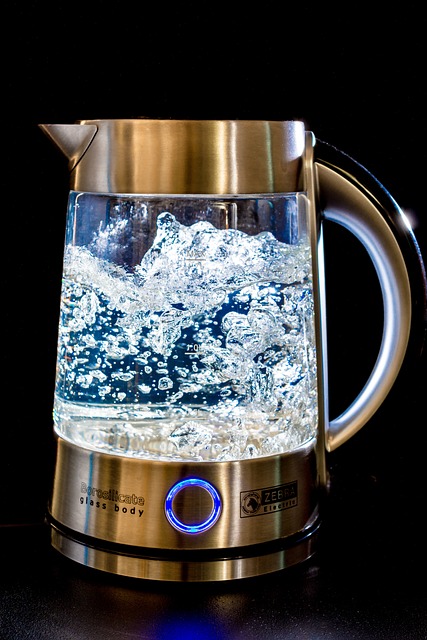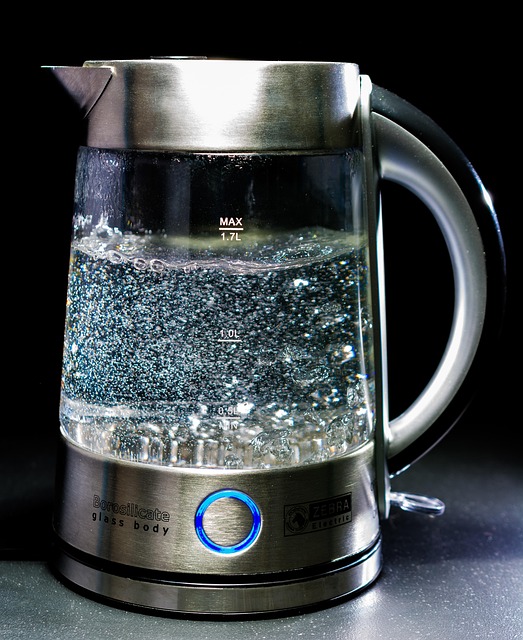Hard water, high in minerals like calcium and magnesium, can cause scaling inside water heaters, reducing efficiency, lifespan, and leading to issues like rusty water and heating element failures. Regular maintenance, including flushing and cleaning, plus checking and replacing the anode rod, is crucial for optimal performance and longevity. Installing a water softener and regular professional check-ups are also recommended for efficient operation, saving money, and preventing damage.
Hard water can wreak havoc on your water heater, causing damage that leads to costly repairs or replacements. This happens due to the mineral buildup from hard water, which reduces the heater’s efficiency and can lead to premature failure. Understanding the impact of hard water and identifying signs of damage early are crucial steps in maintaining your water heater. By implementing preventative measures and adopting effective solutions, you can extend the life of this essential appliance and avoid unexpected breakdowns. Explore these strategies for optimal water heater maintenance.
- Understanding Hard Water and Its Impact on Water Heaters
- Identifying Signs of Hard Water Damage
- Preventative Measures and Solutions for Water Heater Maintenance
Understanding Hard Water and Its Impact on Water Heaters

Hard water, rich in minerals like calcium and magnesium, can have a significant impact on your water heater’s performance and longevity. These minerals have a tendency to accumulate inside the tank, leading to a process known as scaling. Over time, scale buildup can insulate the tank, reducing its ability to heat water efficiently. This not only increases energy consumption but also shortens the lifespan of your water heater. Regular water heater maintenance is crucial to addressing this issue.
Regular flushing and cleaning are essential components of water heater maintenance. By removing the accumulated minerals, you can prevent scaling and ensure optimal heating performance. Additionally, checking and replacing the anode rod, which sacrifices itself to protect the tank, is another vital step in maintaining your water heater’s health. These simple yet effective practices will help keep your water heater running smoothly and efficiently.
Identifying Signs of Hard Water Damage

Hard water, rich in minerals like calcium and magnesium, can cause significant damage to your water heater over time. One of the earliest signs is a noticeable decrease in water pressure, which may indicate that mineral buildup is restricting water flow. You might also observe rusty or discolored water coming from taps, an indicator of corrosion caused by hard water. Another symptom includes frequent heating element failures or a heater that takes much longer than usual to warm water. Regular Water Heater Maintenance plays a crucial role in preventing these issues. By scheduling periodic flushing and cleaning, you can remove mineral deposits that accumulate inside the tank, prolonging your water heater’s lifespan and ensuring optimal performance.
Preventative Measures and Solutions for Water Heater Maintenance

Regular water heater maintenance is key in preventing damage and prolonging its lifespan. One effective preventative measure is to install a water softener, especially if your water supply has high mineral content. This helps reduce the buildup of limescale inside the tank, which can lead to reduced heating efficiency and potential failure.
Additionally, scheduling routine check-ups with a professional can ensure any issues are identified early on. During these visits, they can flush out sediment, inspect electrical connections, and check for gas leaks. Regular cleaning and maintenance not only enhances performance but also ensures your water heater operates safely and efficiently, ultimately saving you money in the long run.
Hard water can significantly impact your water heater’s lifespan and performance, making regular maintenance crucial. By understanding the signs of potential damage and implementing preventative measures, you can protect your investment and ensure optimal heating efficiency. Regular checks, proper cleaning, and timely upgrades to softening systems are key to extending the life of your water heater and avoiding costly repairs. Implement these strategies as part of your comprehensive water heater maintenance routine to keep your home’s hot water supply reliable and consistent.
